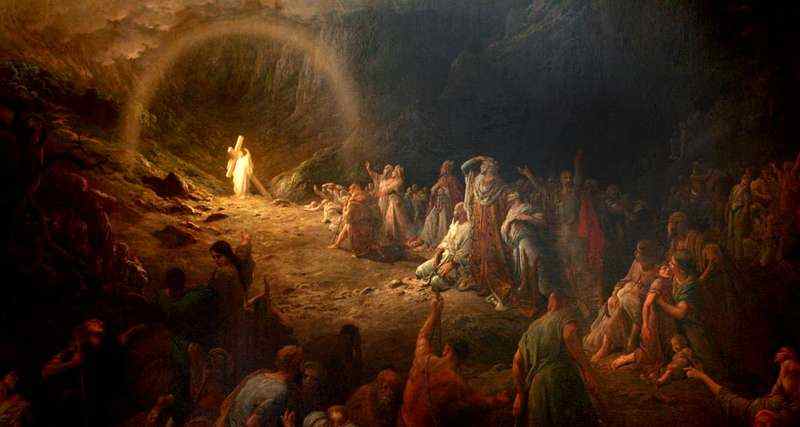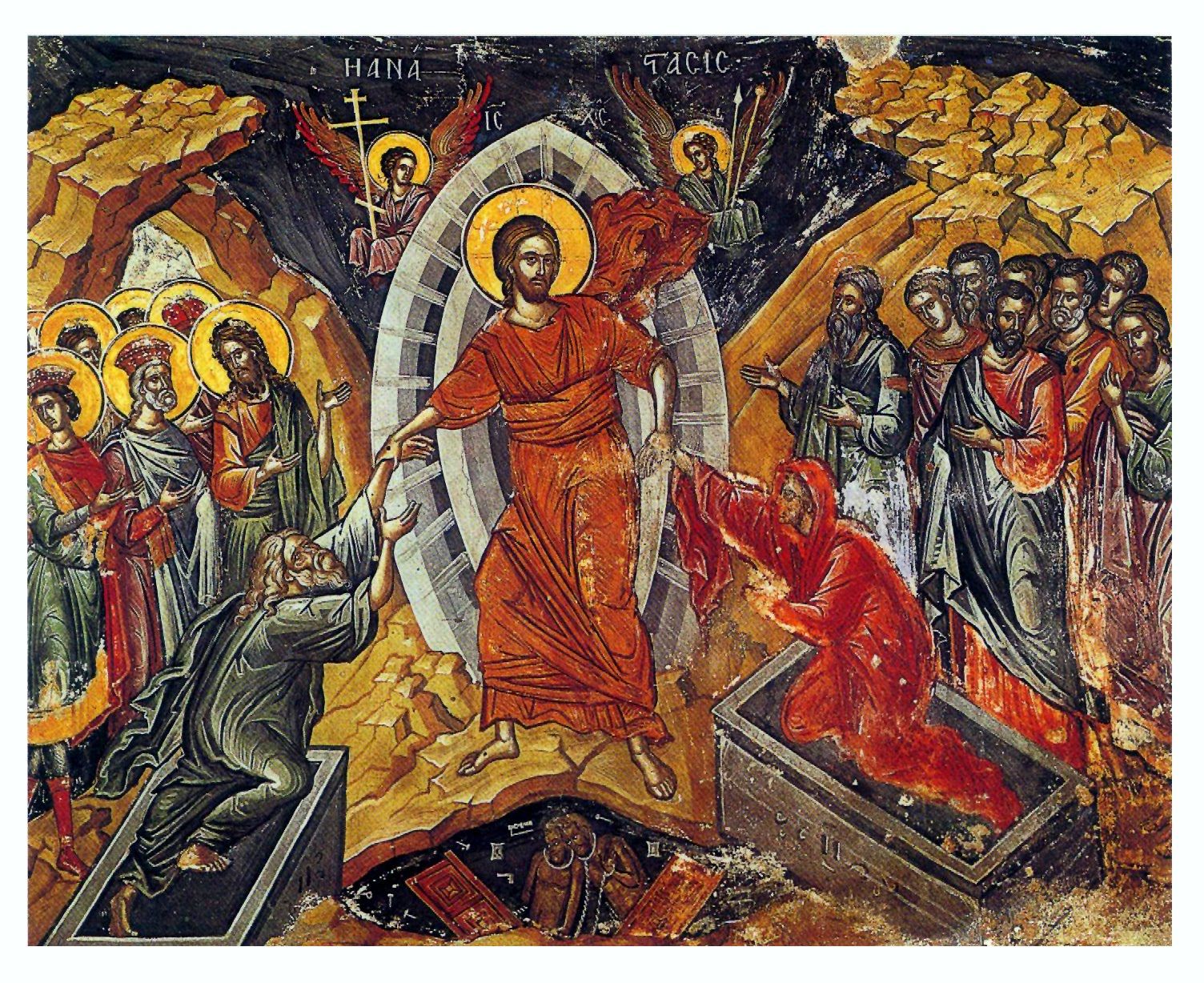Jonah and Jesus descent into Sheol

Of all twelve statements in the Apostle’s Creed, the most maligned is what is referred to as the descent doctrine. This doctrine teaches that after being crucified, Jesus’ body went into the grave but his soul went into the realm of the dead, from which he ascended on that first Easter morning.
In bold is the phrase the Apostle’s Creed uses:
I believe in Jesus Christ, his only Son, our Lord.
He was conceived by the power of the Holy Spirit
and born of the virgin Mary.
He suffered under Pontius Pilate,
was crucified, died, and was buried.
He descended to the dead.
On the third day, he rose again.
He ascended into heaven
and is seated at the right hand of the Father.
He will come again to judge the living and the dead.

This teaching has generally been understood to mean that after his physical death, Jesus’s soul really went to Sheol, where his victory over Satan, sin, and the grave were all announced. His victory was declared to the spirits in prison from the days of Noah, and the righteous dead saw for the first time the object of their faith, namely their victorious Savior. On the third day, he left the realm of the dead, ascended to be reunited with his body, and then resurrected from the grave.
Matthew Emerson, in his excellent book He, Descended to the Dead: An Evangelical Theology of Holy Saturday, defines the descent doctrine this way:
It is a thoroughly biblical doctrine, which teaches that Jesus experienced human death as all humans do—his body was buried, and his soul departed to the place of the dead—and, in so doing, by virtue of his divinity, he defeated death and the grave.”
Despite being in the Apostle’s Creed, this doctrine is not universally believed. First, as the Catholic Church begin to drift more and more into sacerdotalism, the descent to the dead gradually morphed into a descent into hell.

By the time of the Reformation, Calvin rejected the doctrine as a Catholic hangover, assuming it was connected to the unbiblical concept of Purgatory., and today many evangelicals follow Calvin’s lead, and ditch the descent.
But that’s a mistake. The doctrine really does belong in the creed, Calvin’s objections notwithstanding.
In order to understand why the descent doctrine is so important, you have to see how it functions in the context of the Bible’s teaching about the afterlife.

Before Christ, whenever someone died their soul descended into the land of the dead, called Sheol. This was true for both the righteous (Psalm 88:3; 141:7) and the unrighteous (Psalm 55:15, Proverbs 5:5). Basically, everyone who died before Christ went there (Psalm 89:48).
But not everyone had the same experience in Sheol. For those who were saved (to borrow a NT term, and I use it here to mean those who had faith in the promised Savior), Sheol was a land of rest, reunion, and waiting on deliverance. It is described as rest in Job 3:13 and as a place of reunion in Genesis 37:35 and 2 Samuel 12:23.
The righteous dead went there and waited to experience their redemption by the Savoir (Psalm 16:10, 30:3, 49:15, Proverbs 15:24). This is the point in Hebrews 11:29, where the author even says that those that died in faith in the OT still had not yet received what was promised them.
In other words, in the OT, when saints and patriarchs died, their souls went to Sheol where they waited for Jesus to conquer the grave, redeem them, and bring them to the realms of glory.
As evidence of this, note that just about every reference of Sheol in the OT is down, down down. Whenever someone died, righteous or not, they went down to Sheol.
There they would wait to later be taken up, up, up to glory. In Psalm 55:15, Sheol is said to be “down.” Psalm 86:13 describes Sheol as having depths. Psalm 139:8 contrasts heaven (ascent) when Sheol (descent). Proverbs 5:5, 7:27, and 9:18 all describe it as down.

To be clear, not all in Sheol were suffering. I don’t mean to imply that Abraham was in soul sleep, or in a form of purgatory or punishment. His soul was awake, as are all the souls there. There were reunions with loved ones there. When Job describes it as a place or rest (Job 3:13), he does not mean soul sleep, but rather that the effort, labour, and strife of this world is completed. They were only missing their saviour.
Thus, when Jesus died he brought to a close that era. He descended to the grave, to Sheol, and proclaimed his victory to the Spirits there (Ephesians 4:8).
Having redeemed the righteous souls there, his victory was announced, and their reunion was complete. They then went to heaven, where they were to be joined by Jesus, who had one stop to make on his way; he first had to go back to Jerusalem to fetch his body and resurrect from the grave.

Now when we die, we don’t go down, down, down. Rather, we go up up up (1 Thessalonians 4:17). Stephen, the first martyr, knew his soul would be received in the heavens, not in the ground (Acts 7:56-59). Understand that this is a monumental shift. It is a seismic shift of dispensational proportions. Even death is reoriented in light of Jesus’ resurrection from the grave.
Thus, when someone asks, “what Bible verses teach the descent of Jesus?” it is a question that reveals a deficiency in biblical theology. While of lesser doctrinal importance than the Trinity, it has the same kind of ring to it: What Bible verses teach the Trinity? Well, it is a theme all over the place.
The Bible doesn’t use the word Trinity, but the concept is a major theme. The same (although let me repeat, to a lesser level of importance) is true about Jesus’ descent.
But some people do miss the forest for the trees on this. They dismiss the OT description of Sheol with something like, “OT saints didn’t have a good understanding of the afterlife… you see, they didn’t really know what it would be like…so, silly Jacob and Joseph and David and Solomon and Job and Asaph, they all thought death was down…but you see, it is really up.”
We should be slow to dismiss their testimony.

In addition to those verses though, there are some pretty compelling New Testament descriptions of Jesus’ descent. In 1 Peter 3:18-20, Peter says that had died in his body, Jesus’ soul went and proclaimed to the spirits who disobeyed in the time of Noah.
There are about a hundred different ways to understand this verse—Jesus preaching to angels in angel jail is how I take it—but regardless of to whom exactly Jesus was preaching, the bottom line is that they were spirits who were in the land of the dead because bad things that happened in the OT era. So wherever those spirits are, Jesus went there on the Saturday after his crucifixion and before his resurrection.

Paul picks up on this in Ephesians 4:8, where he says that in order for Jesus to give spiritual gifts to the church, he first has to have ascended, which he does while leading “a host of captives.”
I take this as a reference to the souls of the righteous who are now united with their previously unseen saviour.
I take it this way because the next verse says, “In saying, He ascended, what does it mean but that he had also descended into the lower parts of the earth?” (Ephesians 4:9). The phrase “lower parts of the earth” is the OT description of Sheol, and this procession matches what was described both there and at the end of Hebrews 11.
But for me, the most persuasive description of Jesus’ descent comes from Matthew 12:39-41. Jesus says he is going to give a final sign, namely the sign of Jonah.
Clearly, this is a prophecy of his death and resurrection, right?

Yet if you look carefully, the part of Jonah’s story Jesus draws attention to is not the death or resurrection, but the three days that Jonah spent “in the belly of the great fish.” Jesus then seals the deal when he says that after he dies, he will go “in the heart of the earth.” Now, let’s see…is there a place in the OT that is described as in the heart of the earth? That’s right, Sheol.
This isn’t a stretch, because fortunately, we have Jonah’s own words. When Jonah was in the belly of the whale, he “cried out to Yahweh, out of my distress, and he answered me; out of the belly of Sheol I cried” (Jonah 2:2). Note that Jesus used the phrase “belly of the earth” in reference to Jonah, while Jonah himself called it “the belly of Sheol.”
Much more could be said about this. Jonah goes on to quote Psalm 18:5, and compare the cords of Sheol to seaweed, for example (Jonah 2:5). In fact, Jonah goes on to say that the whale took him to a place “at the roots of the mountains, where I went down to the land whose bars closed upon me forever; yet you brought up my life from the pit” (Jonah 2:6). You can debate about if Jonah really died or not (I lean to no), but the point is that just as what happened to him in the whale was like death, it was also necessarily like Sheol.
Thus Jesus declared in Matthew 12:39-41 that if Jonah merely pointed to a death, descent to Sheol, and then resurrection, Jesus would actually do all three. He would literally die, literally go to Sheol, and literally be resurrected.
It simply doesn’t make sense to say that the first and last of those are signs while the middle one is incidental when the Sheol part is exactly what Jesus highlighted.
Why does this matter?
Remember that when Jesus died, the disciples were not expecting a resurrection (Luke 24:1). Jesus’ resurrection was not contingent upon their faith.
Resurrection, like salvation, is all of the Lord. So we ought not to say, “Who will descend into the abyss? (that is, to bring Christ up from the dead)?” (Romans 10:8). Christ will come up from the dead by the power of God. And he will the last of the righteous that the Holy Spirit needs to release from Sheol.

